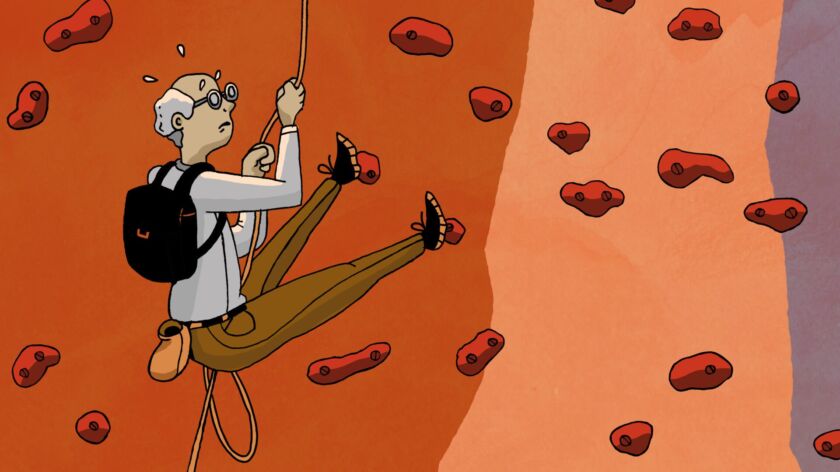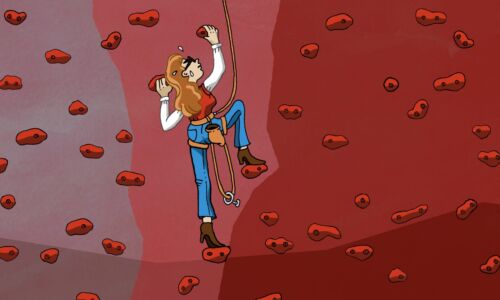Hierarchy at the university (5): ‘The phenomenon of the perpetual associate professor is quite tragic’
-
 Illustratie: Ivana Smudja
Illustratie: Ivana Smudja
Should everyone at Dutch universities, from assistant to full professor, be given the title of ‘professor’? Is today's university too hierarchical? Five researchers shine their light on power relations on the Nijmegen campus. Part 5: Henri de Waele, Professor of International and European Law.

‘Becoming a professor is usually preceded by an entire career. Of course, you really have to prove yourself; I see that title as the crowning glory of a person’s career. Most people follow the classic path: assistant professor (UD), associate professor (UHD) and then eventually full professor (hoogleraar). When beginning as an assistant professor (UD), you are actually just coming into your own. You may have had a few good publications. You have gained some teaching experience, but you are still at the bottom of the ladder.
At some point, you have to show you have it in you on several fronts. That you are at the forefront of your field. Sometimes you have to be prepared to go to another university, perhaps abroad, for a period of time.
‘Unfortunately, there are also capable people who do not manage to become full professors’
It is not that you automatically promoted to full professor if you hang around here long enough. Some countries might have a more nepotistic approach, or you might be offered a professorship as a favour. But that is not how it should work. The Dutch system is really more meritocratic.
It is an ‘up or out’ system, though; you have to climb the ladder. But ultimately, people mostly reach that final peak thanks to their own merit. Socially, the title of professor gives the most recognition and visibility.
Unfortunately, there are also capable people who do not manage to become full professors. The eternal associate professor (UHD) is a tragic phenomenon. Sometimes a person is really good in their field, but still not ‘professor material’. You also need a certain amount of skill in how you manoeuvre yourself into the spotlight.
Outsiders often really look up to the Rector Magnificus or the President of the Board. As if it is some kind of super-job, which requires you to actually be a top performer in your field. I personally think that as a Rector or President of the Board, you are mainly concerned with governance. I would never actively pursue this kind of position; it wouldn’t suit me at all.
I see this kind of position more as a chore. A very honourable chore, but you usually alienate yourself from your field and faculty.
In my experience, the hierarchy at our Faculty of Law or at my department is not that strong. I think our contact with each other is pretty relaxed. People feel they can talk about almost anything, in typical Dutch fashion.
‘In the business world, not everyone becomes a director right away either’
Today’s university is no longer what it was when I was a student, with mostly male professors. The glass ceiling is already being substantially broken in academia. There are also professors of colour now. That is a good development because the more diverse your team is, the better you perform, as a lot of research has shown.
But to give everyone the official title of professor in the Dutch system, which is what the Young Academy, for example, advocates… I also look at the possibility of becoming a professor from the well-known cliché of the dot on the horizon. It gives you something to work towards. And in that sense you might also wonder whether it would not have a demotivating effect. So be careful what you wish for. In the business world, not everyone becomes a director right away either.’
Besides, as a Tilburg colleague of mine said the other day: if you really want to level everything, just pay everyone the same. Do you have money for that? Because if you don’t, then of course it’s a fop innovation. On the surface, you may be treating everyone equally, but behind the scenes there is still a difference.’



